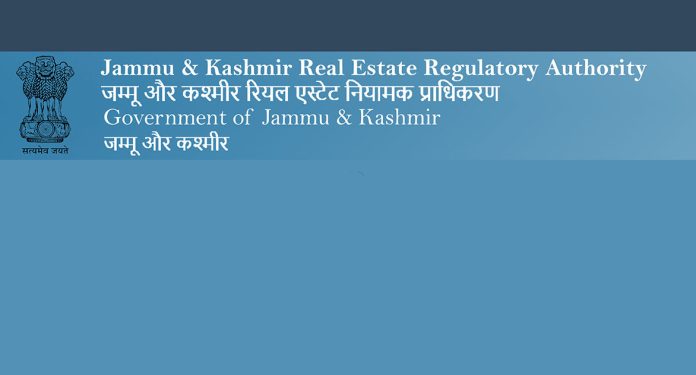The setting up of the Jammu and Kashmir Real Estate Regulatory Authority (RERA) was a pivotal move towards transparency and accountability in the region’s real estate sector. Established under the J&K Real Estate (Regulation and Development) Rules, 2020, the J&K RERA was intended to create a regulated framework for real estate, ensuring consumer protection and promoting fair practices among developers. However, ten months after its establishment, the lack of compliance with RERA guidelines by both private developers and Government agencies, such as the JDA and SDA, reveals a worrying disregard for the law and casts doubts on the UT’s development priorities.
Soon after, directives from the Housing and Urban Development Department made it mandatory for all real estate projects-both ongoing and new-to be registered with RERA. Despite these directives and multiple reminders issued by the department, several projects under the purview of Government agencies like JDA and SDA remain unregistered. These projects include significant ventures such as Muthi Phase-II flatted accommodation, Kot Bhalwal Housing Colony in Jammu and Shehjar Apartments in Srinagar, among others. While one would expect voluntary compliance from Government agencies that fall under the Housing and Urban Development Department’s administrative control, the current situation reflects a starkly different reality.
The disregard shown by JDA, SDA, and other Government bodies towards RERA regulations raises questions about accountability. When Government entities, which are expected to model adherence to the law, ignore mandated procedures, it weakens the credibility of regulatory authorities and encourages similar laxity among private developers. It sends a troubling message to private players-that regulatory compliance is optional rather than obligatory.
The neglect of rules is not just a legal matter; it directly impacts the quality of life in the region’s housing colonies. Residents of several JDA housing colonies, for instance, have reported the absence of basic amenities like water supply, electricity, and proper sanitation facilities. Kot Bhalwal Housing Colony serves as a glaring example, with development charges having been collected from successful bidders yet no corresponding improvements made to the colony’s infrastructure. Such instances highlight a pattern of neglect and indicate that RERA’s protective provisions for homebuyers remain largely unimplemented, to the detriment of those investing their savings in these properties.
Furthermore, the reluctance of private developers to register with RERA cannot be ignored. Many of these developers are actively marketing and selling plots and housing units across Jammu and Srinagar without obtaining the requisite RERA registration. Non-compliant developments have mushroomed in areas like Paloura, Kanger Morh, Nagbani and along the Ring Road. The presence of unregistered projects puts consumers at risk, as they lack the legal recourse that RERA registration ensures. Section 3(1) of the J&K Real Estate (Regulation and Development) Act stipulates that any real estate project within designated planning areas must be registered with RERA before being marketed or sold. By bypassing this rule, developers infringe upon homebuyers’ rights, who are left without the protections and assurances that RERA is meant to provide.
RERA has been granted powers to penalise violators, including imposing fines up to 10 percent of a project’s estimated cost for initial non-compliance and even imprisonment for continuing violations. However, without swift and decisive action from RERA itself, these penalties remain mere threats, and they are unable to address the root issue of widespread non-compliance. The current scenario calls for RERA to adopt a stricter stance in enforcing its regulations. Transparency initiatives, such as publishing a list of non-compliant projects or developers, would inform potential homebuyers and deter them from investing in unregistered properties. Additionally, RERA should consider working with the Housing and Urban Development Department to hold senior officials accountable in agencies that fail to meet registration requirements. Increased public outreach can empower citizens to demand RERA compliance before making investment decisions. Without strict enforcement, RERA will be rendered ineffective, and the confidence of J&K’s citizens in the real estate market will continue to erode.
Trending Now
E-Paper


